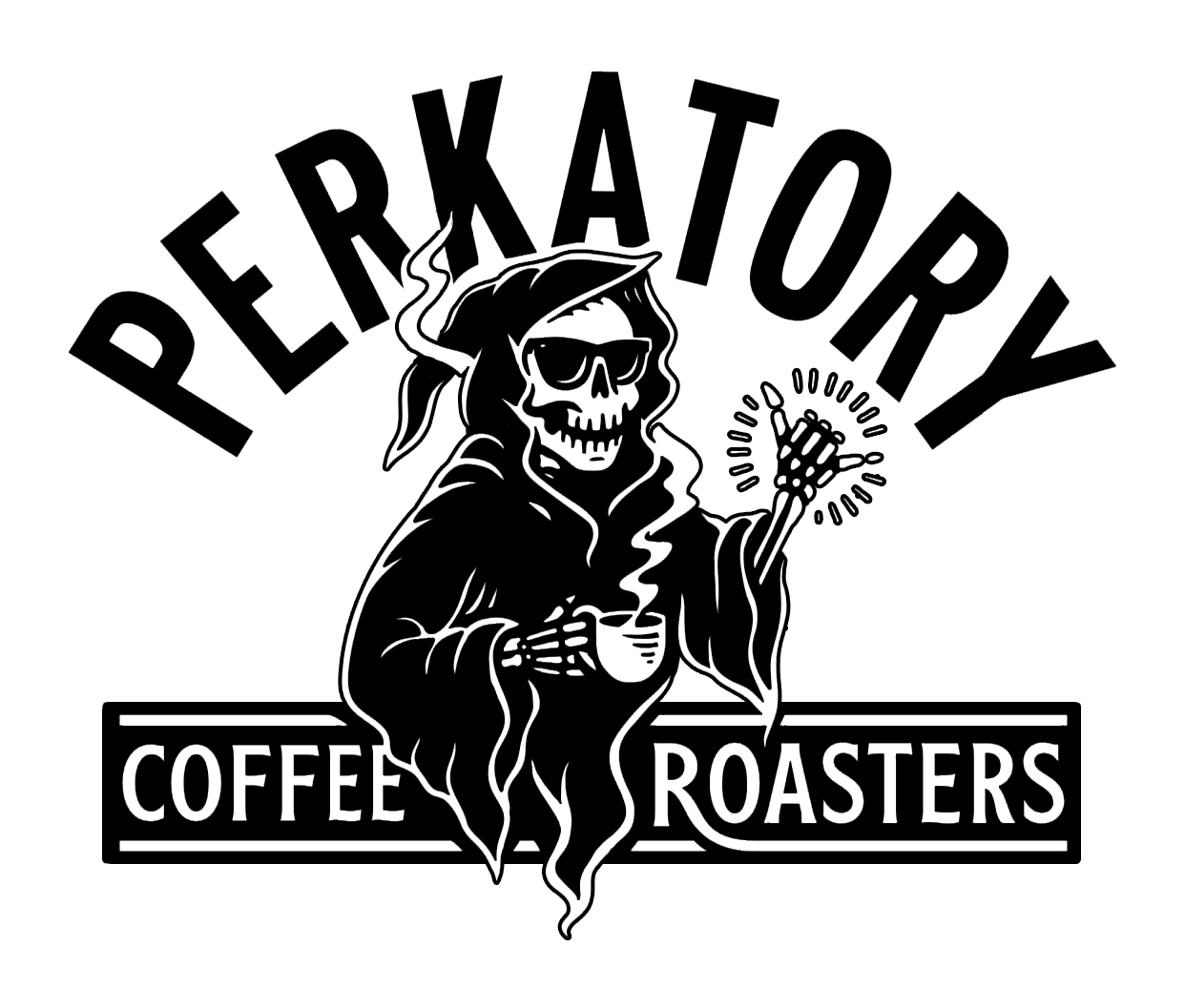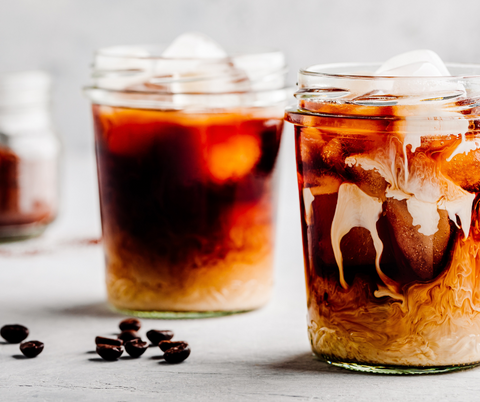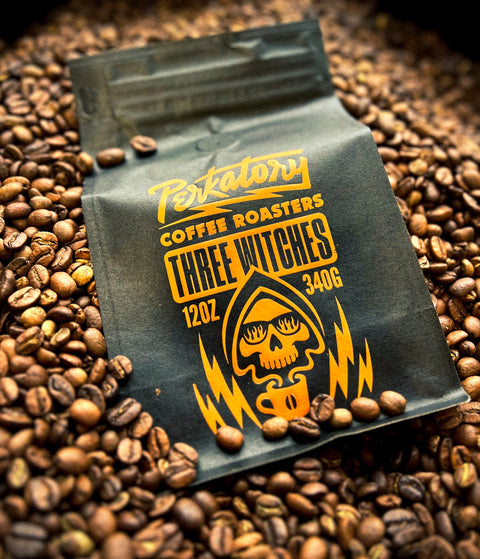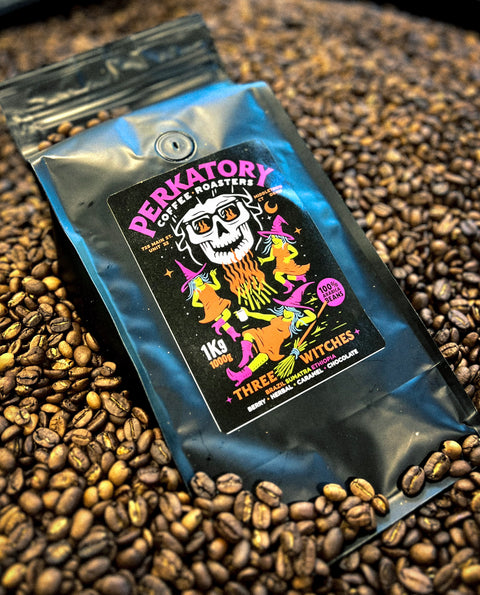If you're a coffee lover, you've probably heard about the cold brew trend taking over cafes and homes. This technique of brewing coffee involves steeping coarsely ground coffee beans in room temperature or cold water for an extended period, creating a smooth and less acidic cup of coffee. But not all coffee beans are equal, and for the best cold brew experience, you need to choose the right type of coffee beans.
Why is Choosing the Right Coffee Beans Important?
Before we dive into the best coffee beans for cold brew, let's understand why it's essential to select the correct type of beans in the first place. Cold brew requires a longer steeping time than traditional hot brewing methods, meaning the beans are in contact with water for longer. This extended exposure to water extracts more flavor and caffeine from the beans, resulting in a more potent and concentrated brew.
The Importance of Grind Size
One crucial element to consider when choosing the best coffee beans for cold brew is the grind size. The coarseness of your coffee grind significantly affects the final flavor of your brew. For cold brew, a coarser grind is typically recommended. The extended brewing time of cold brew means that a finer grind can often result in an over-extracted, bitter coffee. Conversely, a coarser grind allows for a slow and steady extraction of flavors, resulting in a smoother, sweeter, and full-bodied brew characteristic of cold brew coffee. This is why, when shopping for pre-ground coffee for your cold brew, it's essential to look for brands that specify a coarser grind. If you're grinding your beans at home, aim for a consistency similar to bread crumbs.
Factors You Should Consider When Choosing Coffee Beans for Cold Brew
- Roast Level:
The roast level of coffee beans plays a predominant role in determining the taste of your cold brew. Generally, darker roasts have a bolder and more intense flavor, while lighter roasts are milder and have a higher acidity level. For cold brew, it's recommended to go with medium or dark roast beans, as they have a more prosperous and smoother taste.
- Origin:
The origin of coffee beans also impacts the flavor profile of your cold brew. Each region produces coffee beans with unique characteristics, and it's up to personal preference which one you prefer. South American beans are known for their chocolatey and nutty notes, while African beans have a fruity and floral taste. You can also opt for a blend of beans from different origins for a well-balanced cold brew.
- Processing Method:
The method used to process coffee beans also affects their flavor. For cold brew, choosing beans that have been processed using the natural or honey method is recommended. These methods involve drying the coffee cherry with intact pulp, resulting in a sweeter and more complex flavor.
Top 3 Coffee Beans for Cold Brew
Now that we know the importance of selecting the correct type of coffee beans for cold brew, let's explore some of the best options available in the market:
- Colombian Supremo:
As one of the most popular origins of coffee beans, Colombia is known for producing high-quality Arabica beans. The Colombian Supremo beans are medium to dark roasted and have a full-bodied flavor with notes of chocolate and caramel. These beans are also affordable and easily accessible, making them an excellent choice for cold brew beginners.
- Ethiopian Yirgacheffe:
As coffee's birthplace, Ethiopia produces some of the finest beans in the world. The Yirgacheffe beans are known for their fruity and floral flavor profile, making them a perfect match for cold brew. These beans are usually medium-roasted, resulting in a smooth and well-balanced cup of coffee.
- Brazilian Cerrado:
Brazil is by far the largest producer of all coffee beans in the world, and their Cerrado variety is excellent for cold brew. These beans are dark-roasted and have a bold and rich flavor with hints of chocolate and nuts. They also have a low acidity level, making them an excellent option for those who prefer a smoother cold brew.
Tips for Making the Perfect Cold Brew
- Use filtered water to make your cold brew. This will prevent any impurities from affecting the flavor of your coffee.
- Invest in a good quality grinder, as freshly ground beans produce better-tasting coffee.
- Experiment with different brewing ratios to find your preferred strength and flavor.
- To avoid sediment in your cold brew, strain the coffee using a fine-mesh filter or cheesecloth.
- Increasing the steeping time rather than adding more coffee grounds for a more potent and concentrated cold brew.
The Impact of Water Quality on Cold Brew Coffee
Water quality significantly influences the overall taste and quality of your cold brew. Considering that water constitutes about 98% of your cup of coffee, it's no surprise that it plays an important role in determining the final flavor. The specific characteristics of your water, such as its mineral content and pH, can alter the extraction process, affecting how flavors and compounds are extracted from your coffee beans.
Mineral content in water interacts with the coffee compounds, and the right balance can enhance certain flavors in your cold brew. Hard water, containing higher concentrations of minerals like magnesium and calcium, tends to highlight bitter flavors because these minerals effectively extract flavor compounds. Conversely, soft water, which is low in mineral content, extracts less from the coffee, often leading to a more balanced and sweeter taste.
The pH level of your water can also make a difference. Ideally, you'd want to aim for neutral or slightly hard water to achieve the best results. Too acidic or alkaline water can make your cold brew taste sour or flat.
Investing in a good water filter can help regulate these elements. It can remove unwanted tastes and odors, heavy metals, and certain minerals that could negatively impact the taste of your cold brew. Using filtered water is a simple step that can make a considerable difference in creating the best coffee beans for your cold brew. After all, a great cup of coffee is much more than just the beans. It's a harmony of various elements, and water plays a significant part.
Conclusion
Choosing the correct coffee beans for cold brew is important in achieving a delicious and satisfying cup of coffee. When selecting, consider factors such as roast level, origin, and processing method. Feel free to experiment with different beans until you find the ideal match for your taste buds. With the right beans and some brewing tips, you can enjoy a smooth and flavorful cold brew anytime, anywhere.



